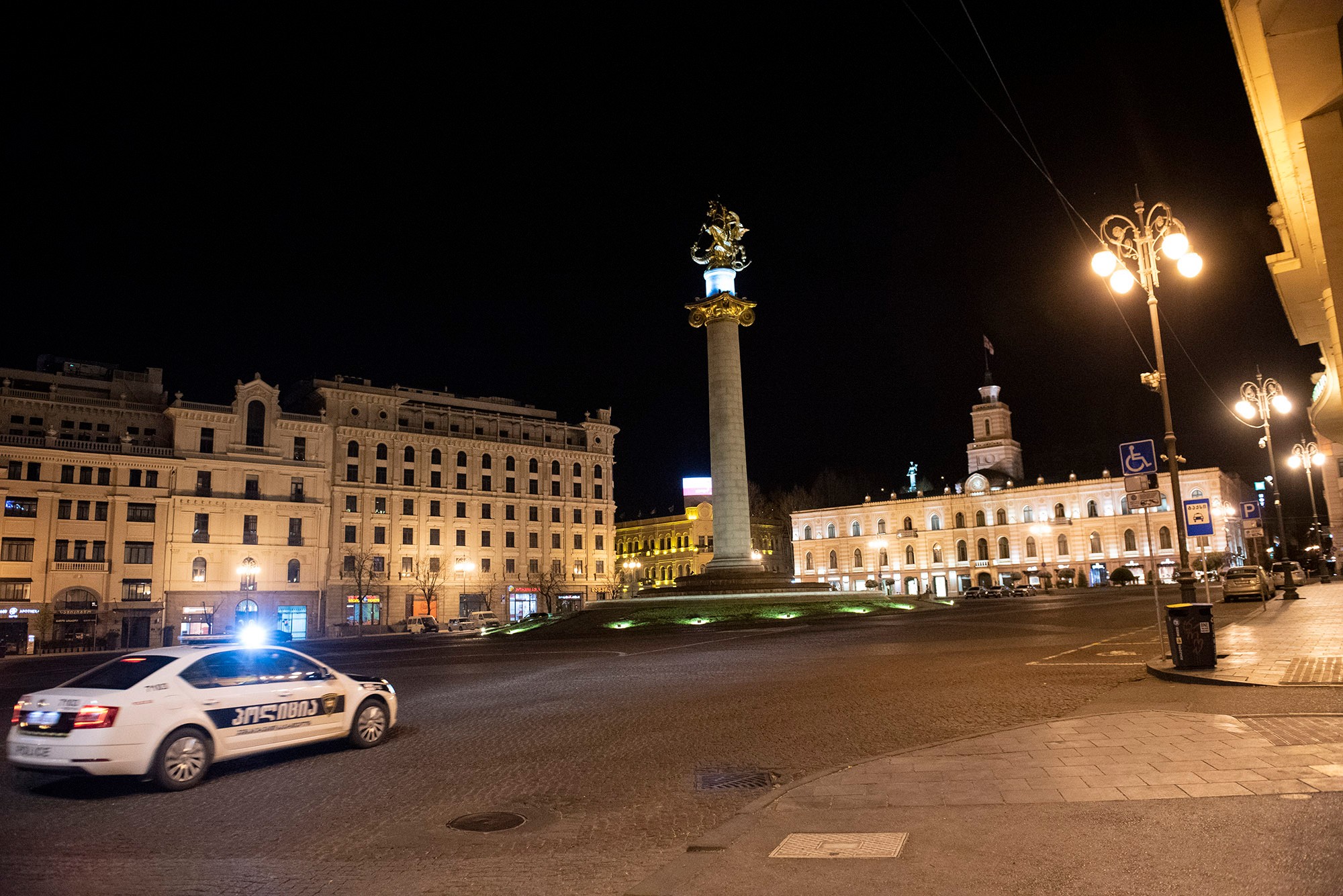
A doctor in Georgia has been accused of sexually harassing a woman in quarantine during a medical examination. According to women’s rights group Sapari, the male doctor touched her inappropriately and suggested that the alleged victim fully undress herself to check her lungs.
On Thursday, Baia Pataraia, the head of Sapari, said in an online briefing that the measures the doctor suggested the patient take were completely unnecessary for the medical procedure.
‘The girl rejected the doctor’s plea to fully undress. After he undid her bra and examined her lungs, he demanded she lie down in order to examine her joints. During the “examination of joints”, he touched her inappropriately numerous times’, Pataraia said.
She added that she had consulted with numerous doctors all of whom confirmed that examining a coronavirus patient did not require examining her joints.
‘We tried to find out the standard procedure of checking for the virus. It turned out it required measuring temperature and checking their lungs, not joints. She didn’t have any [other] health concerns, however, was treated this way’, said Pataraia.
She added that the accused doctor had confirmed to the Public Defender’s Office that he had examined her ‘this way’.
She demanded the accused doctor be suspended by the State Regulation Agency for Medical Activities until the Public Defender’s Office examines the case.
‘We don’t know if other patients are also vulnerable to this kind of behaviour from this doctor […] It’s necessary this doctor be suspended, until the Public Defender’s Office examines the case, as he might be a threat to other patients as well’, said Pataraia.
After the allegation was made public, the Ministry of Health issued a statement, stressing that the accused doctor was not employed by the ministry or at the emergency services.
‘The ministry, together with other relevant bodies, will be monitoring and investigating the issue’, the statement read.
There are currently over 4,900 people in compulsory quarantine.
So far, 214 cases of coronavirus have been confirmed in Georgia; 50 have already recovered, while 3 people have died. There are currently 408 people under intensive observation.
Georgia’s ‘me too’
In a poll published by UN Women in 2018, one in five women in Georgia said they had experienced some form of sexual harassment. Nine per cent said they had been victims of sexual violence as children.
The Georgian Parliament outlawed sexual harassment in May 2019, levelling fines against those found guilty of unsolicited ‘sexual behaviour’. Amendments were introduced to several laws, including the labour code.
[Read on OC Media: Georgia outlaws sexual harassment]
The law was passed after a string of allegations of sexual harassments and sexual assault were made public against two high-profile people the previous year.
In March 2018, at least 10 women accused Zviad Devdariani, the former head of local NGO CiDA, of sexual harassment or sexual assault. The women came forward after Devdariani was nominated for a spot on the Public Broadcaster’s board of trustees.
Devdariani denied the allegations against him, claiming to be the victim of a plot to discredit his professional reputation.
Devdariani initiated legal action against 11 people in June for ‘violating his honour and dignity’, including media personalities, politicians, and women’s rights activists.
On 2 November, the Public Defender’s Office said they had found that Devdariani sexually harassed three women; inquiries into claims by two others were terminated due to a lack of evidence.
[Read more about Devdariani’s case on OC Media: Georgian Public Defender: Devdariani sexually harassed three women]
Also in March 2018, the chair of Georgia’s Public Registry, Papuna Ugrekhelidze, resigned after two former employees accused him of sexual harassment.
A report by the Coalition for Equality, a bloc of local rights groups, documented a number of accusations levelled against Ugrekhelidze.
‘The head of the Public Registry would call the accusers offensive nicknames. The head of the Public Registry would tell others that the accusers were his “squirrels”, that he had sex with them, and that he could fire them anytime as he had hired them’, the report said.
In June 2018, Ugrekhelidze sued both women for insulting his professional reputation.
[Read more about Ugrekhelidze’s case on OC Media: Two women suing former Georgian Public Registry head for sexual harassment]
The ruling Georgian Dream-backed law on sexual harassment was adopted a year after Tatia Samkharadze, a former employ of TV channel Imedi, won a landmark case against her former boss Shalva Ramishvili. In January 2018, Tbilisi City Court obliged Ramishvili to pay a ₾2,000 ($740) fine to a plaintiff.









